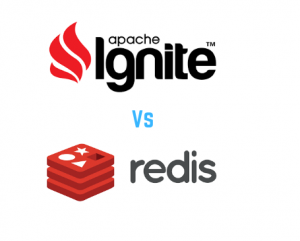Wondering which one is better, Apache Ignite vs Redis? Our Redis Support team is here to lend a hand with your queries and issues.
Apache Ignite Vs Redis
Apache Ignite and Redis are both in-memory data stores that provide fast access to data. While they are similar in a few ways, they differ in key areas like the type of data they store, the functionality they offer, and so on.
An Introduction to Redis
Redis is a well-known open-source, in-memory data structure store. We can use it as a database, cache, as well as message broker. Furthermore, it supports several data structures, like strings, hashes, lists, sets, and sorted sets. Additionally, it is a good choice for use cases such as caching, real-time analytics, and leaderboards.
An Introduction to Apache Ignite
Apache Ignite, on the other hand, is a memory-centric distributed database, processing, and caching platform. It stores both structured and unstructured data. Furthermore, it offers several functionalities, like distributed computing, data indexing, and querying.
In fact, Ignite is the better choice for use cases like real-time data processing, high-performance, and event-driven systems computing.
Differences between Apache Ignite vs Redis
- Data Storage
One of the primary differences between Ignite and Redis is the way they handle data. While Redis stores data in memory, Ignite relies on memory and disk to store data. Hence, Ignite can store much larger amounts of data than Redis. This makes it more suitable for use cases where large amounts of data need to be processed in real-time.
- Data Distribution
Redis uses a master-slave replication model to handle data distribution, and Ignite uses a fully distributed architecture, where data is distributed across all nodes in the cluster. In other words, Ignite can scale horizontally and support very large datasets without a dip in performance.
- Functionality
According to our experts, Redis is more limited than Ignite. Although Redis supports several data structures and offers basic operations to manipulate them, it does not offer advanced functionalities.
On the other hand, Ignite offers a wide range of functionalities. This makes it preferable for real-time data processing and event-driven systems.
[Need assistance with a different issue? Our team is available 24/7.]
Conclusion
In conclusion, our Support Techs demonstrated the differences between Apache Ignite and Redis. At the end of the day, Redis is best suited for use cases like caching and real-time analytics, while Ignite suits use cases like real-time data processing and event-driven systems. Ultimately, the choice between them depends on the requirements of the use case and the size as well as the complexity of the dataset.
PREVENT YOUR SERVER FROM CRASHING!
Never again lose customers to poor server speed! Let us help you.
Our server experts will monitor & maintain your server 24/7 so that it remains lightning fast and secure.




0 Comments